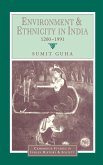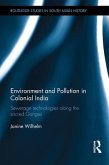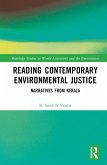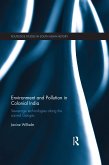India, Pakistan, and Bangladesh contain one-fifth of humanity, are home to many biodiversity hotspots, and are among the nations most subject to climatic stresses. By surveying their environmental history, we can gain major insights into the causes and implications of the Indian subcontinent's current conditions. This accessible new survey begins roughly 100 million years ago, when continental drift moved India from the South Pole and across the Indian Ocean, forming the Himalayan Mountains and creating monsoons. Coverage continues to the twenty-first century, taking readers beyond independence from colonial rule. The new nations of India, Pakistan, and Bangladesh have produced rising populations and have stretched natural resources, even as they have become increasingly engaged with climate change. To understand the region's current and future pressing issues, Michael H. Fisher argues that we must engage with the long and complex history of interactions among its people, land, climate, flora, and fauna.
Hinweis: Dieser Artikel kann nur an eine deutsche Lieferadresse ausgeliefert werden.
Hinweis: Dieser Artikel kann nur an eine deutsche Lieferadresse ausgeliefert werden.








